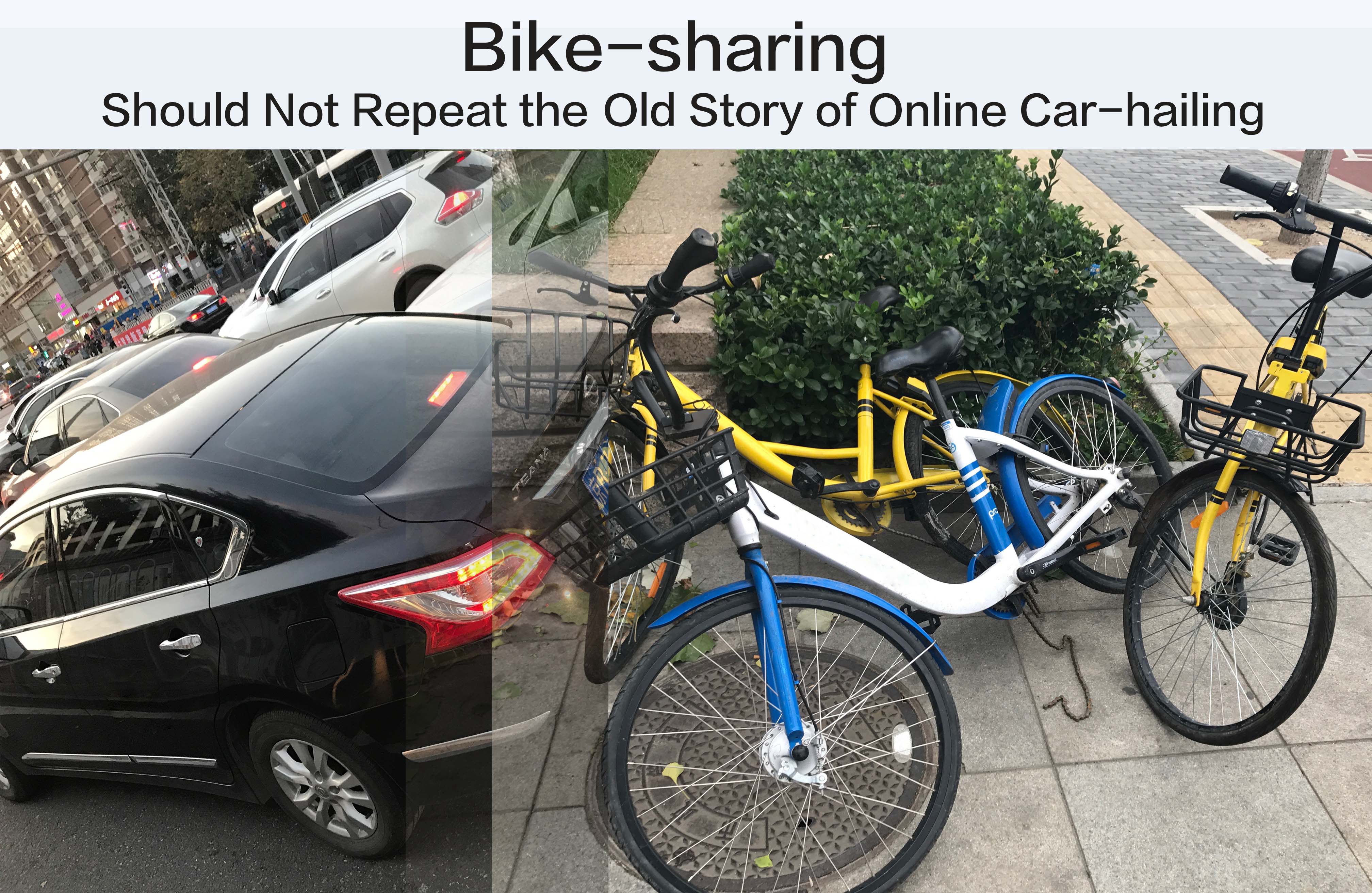Bike-sharing Should Not Repeat the Old Story of Online Car-hailing
Nov 16,2017

By Li Guangqian, DRC
2017-8-24
In early August this year, 10 government ministries including the Ministry of Transport issued the “Guidelines on Encouraging and Regulating the Development of Shared Bikes” (hereinafter referred to as the Guidelines). The Guieelines point out that the mode of shared bikes is a typical business form of the sharing economy, and fully recognize its positive role in satisfying public travel needs, which could effectively address the last hurdles relating to travel difficulties, mitigate urban travel congestion and build a green commuting system.
It should be admitted that the development of shared bikes might face more restrictions than the online car-hailing service. The Guidelines alone can’t ensure the healthy development of the bike-sharing service. Lessons can be drawn from the following case. In July 2016 seven government ministries including the Ministry of Transport released the “Interim Regulations on Online Taxi-hailing Business Operations”. Although the bike-sharing is not strongly resisted by traditional industries as online car-hailing service, it doesn’t mean that the development of bike-sharing will not be restricted by other traditional industries. In fact, the bike-sharing industry may face more restrictions than online car-hailing. It seems that the Guidelines have laid equal emphasis on both encouragement and regulation, but the document is mainly focused on regulation measures including the standardized construction, service operation of enterprises, parking management, supervision on riders’ fund, the protection of Internet and information safety and social governance. In fact, in terms of the actual operation, the localized management policy will impose the toughest restriction on the development of bike-sharing industry. The Guidelines demand “localized management” as well as “shared management”. This shows that the Guidelines not only require county-level government to regulate the management of shared bikes, but also ask community-level organizations to shoulder the principal responsibility.
In the implementations of the Guidelines, three basis requirements need to be made clear. First, we need to give full play to the role of the market mechanism, and rely more on market mechanism to solve relevant problems rather than on policy measures. At the same time, we need to encourage positive competition between peers of the same industry, and support enterprises to establish industry association as well as relevant standards for bike-sharing management. Second, we need to cultivate a favorable and healthy environment for bike-sharing industry and the Guidelines need also encourage more commuters to use shard bikes instead of restricting the operation of enterprises such as the Mobike. Third, we need to provide preferential policies for domestic bike-sharing enterprises to expand their presence in the global market, and accordingly the Guidelines need to make relevant adjustments relating to the policy for the protection of “Internet and information safety”.














